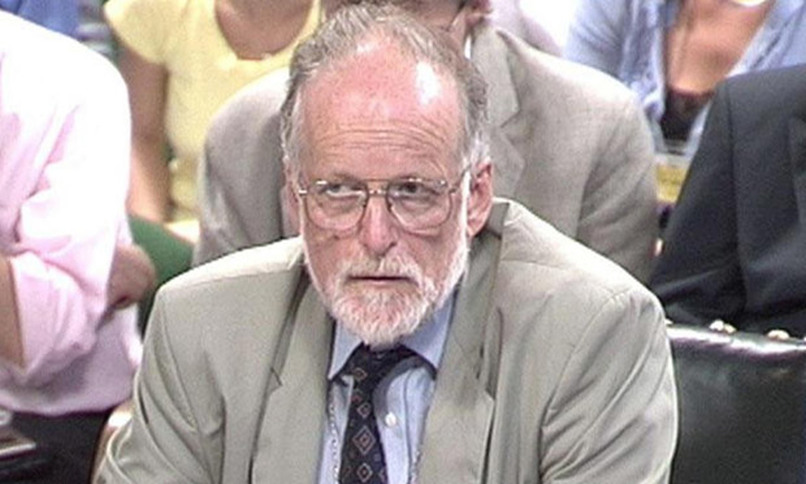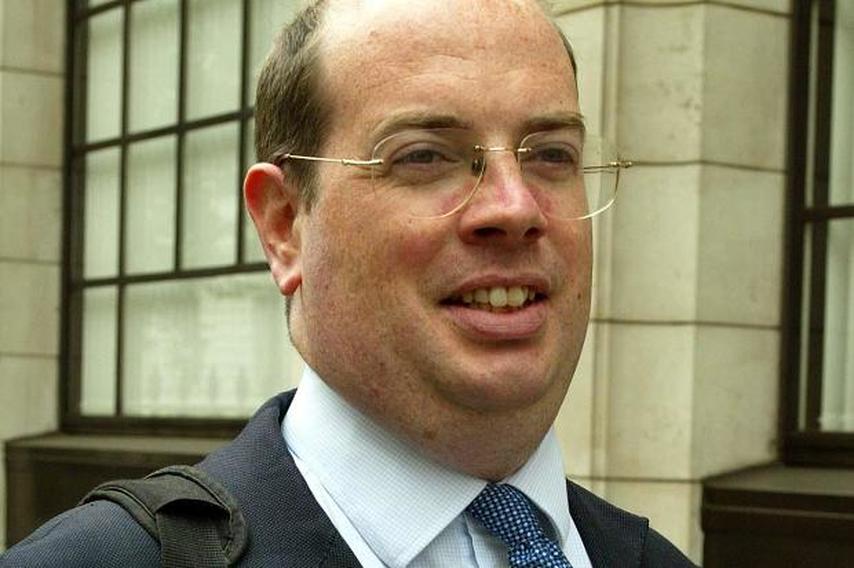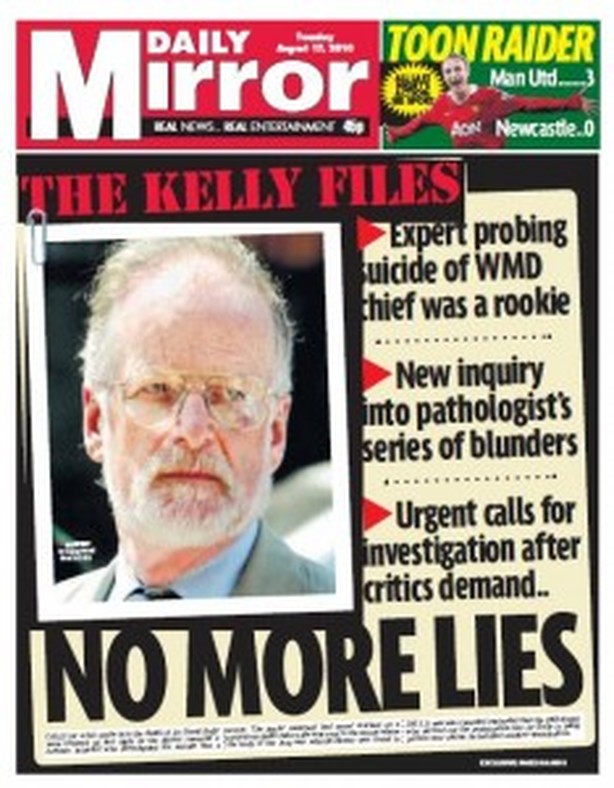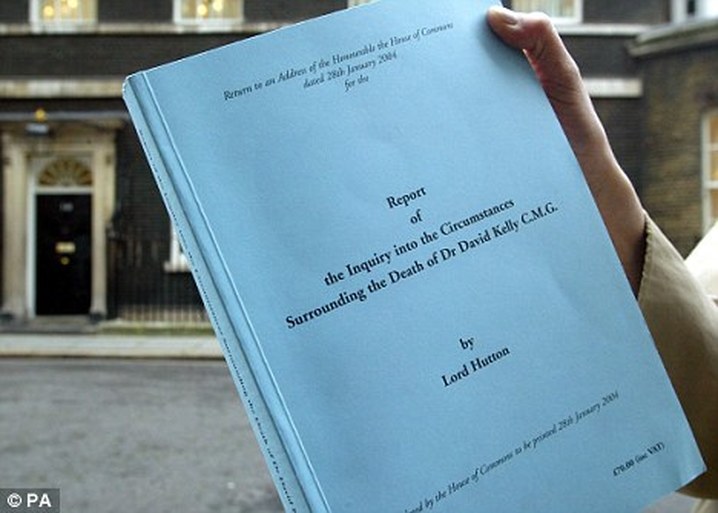David Kelly – Suicide? Or Suicided?
According to historian and author Jon E. Lewis, David Kelly was “as much a victim of the war in Iraq as any soldier or civilian killed on the battlefield!”
David Kelly died on 17th July 2003. Did he commit suicide? Or was he “suicided?”
While most are aware of David Kelly's death and the conspiracy theories that surround it, with the much drawn out and delayed 'Chilcot Report' right in the middle of it, his case still deserves re-looking at.
In the run-up to the start of the conflict in Iraq in March 2003, there was a feeling of nervousness and tension created in the United Kingdom by various “reports” making the case for military engagement with the view to “regime change” in Iraq. There were two documents in particular that made the clear case for war on the assumption that Saddam Hussein was a threat to the UK and world security.
The first was released in September 2002 and stated that Saddam Hussein held “weapons of mass destruction” – a term that became commonly referred to as WMDs – and that more importantly, perhaps crucial to the government’s case, they were said to be able to be deployed within forty-five minutes of the order to do so being given. The second key report was released in February 2003 and was concerned with intricate details of Iraq’s “secret weapons network.”
Despite widespread protest in the UK, British troops were put into action less than a month after the second “key” report.
A little around two months later on 20th May 2003, on the BBC’s flagship current affairs radio program, journalist, Andrew Gilligan, claimed that a “senior source” in the Ministry of Defense had accused a member of the Downing Street press office of having “sexed up” the September report in order to “make the case for war”, in particular, the “45-minute claim” was seen as the most misleading statement.
Another journalist, BBC’s 'Newsnight' correspondent, Susan Watts, also confirmed that she too had spoken to a “senior official” in the MoD who felt that the intelligence services “had come under pressure” to insert the 45-minute claim into the September document. The Downing Street press source was soon identified as Alistair Campbell.
David Kelly died on 17th July 2003. Did he commit suicide? Or was he “suicided?”
While most are aware of David Kelly's death and the conspiracy theories that surround it, with the much drawn out and delayed 'Chilcot Report' right in the middle of it, his case still deserves re-looking at.
In the run-up to the start of the conflict in Iraq in March 2003, there was a feeling of nervousness and tension created in the United Kingdom by various “reports” making the case for military engagement with the view to “regime change” in Iraq. There were two documents in particular that made the clear case for war on the assumption that Saddam Hussein was a threat to the UK and world security.
The first was released in September 2002 and stated that Saddam Hussein held “weapons of mass destruction” – a term that became commonly referred to as WMDs – and that more importantly, perhaps crucial to the government’s case, they were said to be able to be deployed within forty-five minutes of the order to do so being given. The second key report was released in February 2003 and was concerned with intricate details of Iraq’s “secret weapons network.”
Despite widespread protest in the UK, British troops were put into action less than a month after the second “key” report.
A little around two months later on 20th May 2003, on the BBC’s flagship current affairs radio program, journalist, Andrew Gilligan, claimed that a “senior source” in the Ministry of Defense had accused a member of the Downing Street press office of having “sexed up” the September report in order to “make the case for war”, in particular, the “45-minute claim” was seen as the most misleading statement.
Another journalist, BBC’s 'Newsnight' correspondent, Susan Watts, also confirmed that she too had spoken to a “senior official” in the MoD who felt that the intelligence services “had come under pressure” to insert the 45-minute claim into the September document. The Downing Street press source was soon identified as Alistair Campbell.
The BBC and the government became locked in a war of words, with the government demanding to know Gilligan’s source, while the BBC insisted on keeping the source’s right to anonymity.
The BBC’s director of news at the time stated that the level of pressure from Downing Street in this matter was “unprecedented.”
Eventually, both Gilligan and Campbell were called before the Foreign Affairs Select Committee.
The BBC’s director of news at the time stated that the level of pressure from Downing Street in this matter was “unprecedented.”
Eventually, both Gilligan and Campbell were called before the Foreign Affairs Select Committee.
Questions, Claims, And Accusations
It was around this time that Kelly began to wonder if he was Gilligan’s source – he had met the journalist and it was an “unauthorized” meeting. On 22nd May he contacted his superiors to inform them of this, although he stated that he “seriously doubted” he was the source of the main claims by Gilligan.
Perhaps bizarrely on 1st June 2003, the MoD indirectly identified David Kelly as the source of the leak by not denying he was the "leak" when read a list of possible sources during a press conference (they would normally deny all of the names, but this time they didn’t). Even stranger, they did not inform Kelly that his name was being “released” to the press – something that was cited as a fault on their part in the eventual 'Hutton Report'.
By 15th July, Kelly himself sat in front of the 'Foreign Affairs Select Committee', facing the allegations that he was indeed Gilligan’s source for the "45-minute claim."
Kelly was visibly uncomfortable during the early stages of the proceedings – so much so that at one point, the air conditioning had to be switched off so he could be heard. He admitted that he had met with Gilligan, but claimed that he couldn’t have been the source of the 45-minute claim as he was not “privy to the dossier compilation” and had merely suggested points for inclusion.
By the end of his questioning, the FAC felt it was “most unlikely” that Kelly was the source of the “sexed-up 45-minute” claim and Kelly himself now seemed to have relaxed considerably compared to his demeanor when he began giving evidence the day before.
Perhaps bizarrely on 1st June 2003, the MoD indirectly identified David Kelly as the source of the leak by not denying he was the "leak" when read a list of possible sources during a press conference (they would normally deny all of the names, but this time they didn’t). Even stranger, they did not inform Kelly that his name was being “released” to the press – something that was cited as a fault on their part in the eventual 'Hutton Report'.
By 15th July, Kelly himself sat in front of the 'Foreign Affairs Select Committee', facing the allegations that he was indeed Gilligan’s source for the "45-minute claim."
Kelly was visibly uncomfortable during the early stages of the proceedings – so much so that at one point, the air conditioning had to be switched off so he could be heard. He admitted that he had met with Gilligan, but claimed that he couldn’t have been the source of the 45-minute claim as he was not “privy to the dossier compilation” and had merely suggested points for inclusion.
By the end of his questioning, the FAC felt it was “most unlikely” that Kelly was the source of the “sexed-up 45-minute” claim and Kelly himself now seemed to have relaxed considerably compared to his demeanor when he began giving evidence the day before.
London, 17th/18th July, 2003
At 3 pm on 17th July 2003, Kelly left his home for his usual afternoon walk. As it approached midnight he still had not returned and his worried family would contact police. He was found the following morning just after 9 am by two search volunteers at Harrowden Hill.
The police did not confirm the body to be his until 19th July and when they did, they stated he had committed suicide by ingesting coproxamol and by cutting his left wrist. A day later, the BBC named him as the source of both Gilligan’s and Watts’ stories.
The events led to 'The Hutton Report' – an independent review into the events that led to the tragic death of David Kelly. Even the then Prime Minister, Tony Blair, was called to give evidence. Ultimately the findings were that “the government had acted properly, the BBC should be heavily criticized for its actions and that David Kelly had died by his own hand!”
Case solved, right? Not quite.
Many people began to point to inconsistencies in the report and perhaps more damning, at least initially, were the people close to Kelly, who stated that they simply did not believe the “suicide story” and that the case “bore all the hallmarks of a planned assassination!”
The paramedics who attended the scene upon Kelly being found, Paul Bartlett and Vanessa Hunt, also expressed their doubts on the official verdict during an interview with 'The Observer' in December 2004. They stated there was “little evidence of major bleeding” having taken place if the severed artery had indeed been the cause of death.
Hunt said:
The police did not confirm the body to be his until 19th July and when they did, they stated he had committed suicide by ingesting coproxamol and by cutting his left wrist. A day later, the BBC named him as the source of both Gilligan’s and Watts’ stories.
The events led to 'The Hutton Report' – an independent review into the events that led to the tragic death of David Kelly. Even the then Prime Minister, Tony Blair, was called to give evidence. Ultimately the findings were that “the government had acted properly, the BBC should be heavily criticized for its actions and that David Kelly had died by his own hand!”
Case solved, right? Not quite.
Many people began to point to inconsistencies in the report and perhaps more damning, at least initially, were the people close to Kelly, who stated that they simply did not believe the “suicide story” and that the case “bore all the hallmarks of a planned assassination!”
The paramedics who attended the scene upon Kelly being found, Paul Bartlett and Vanessa Hunt, also expressed their doubts on the official verdict during an interview with 'The Observer' in December 2004. They stated there was “little evidence of major bleeding” having taken place if the severed artery had indeed been the cause of death.
Hunt said:
“When somebody cuts an artery – whether accidentally or on purpose – blood pumps out everywhere – I just think it is incredibly unlikely that he died from the wrist wound that we saw!”
Their interview was soon picked up by a group of doctors who openly supported the paramedics’ views – further stating that the artery that had been cut (the ulnar artery) would not have bled enough for him to have died from it before the muscle would have “closed the wound” – trauma surgeon David Halpin explained that the ulnar artery is very deep on the little finger side of the wrist underneath other tissue and ligaments. This would mean that Kelly would have had to have dug deep enough with a “blunt pruning knife” to even locate the artery – something that Halpin and the other authors of the letter felt was most unlikely.
The toxicology results were also called into question as it was stated that the concentration of co-proxamol in Kelly’s blood was simply not enough to have killed him and was only a third of what is considered a fatal dose. In fact, Kelly’s stomach had only contained a fifth of one tablet and not the twenty-nine it was claimed he had taken – so he had either not taken the claimed amount or he had regurgitated them before they had a chance to be absorbed into his blood.
Just to put this into perspective, Kelly was the only person in all of 2003 to have died in this way. While co-proxamol and similar painkillers are often used in suicide attempts, it is generally in much greater doses and usually when mixed with alcohol. Kelly would have had extensive knowledge of biology through his work as a microbiologist and an expert on biological weapons.
Kelly was also said to have had a “severe aversion” to swallowing tablets by people close to him and he was a practicing member of the Baha’I faith that strictly forbids suicide.
The toxicology results were also called into question as it was stated that the concentration of co-proxamol in Kelly’s blood was simply not enough to have killed him and was only a third of what is considered a fatal dose. In fact, Kelly’s stomach had only contained a fifth of one tablet and not the twenty-nine it was claimed he had taken – so he had either not taken the claimed amount or he had regurgitated them before they had a chance to be absorbed into his blood.
Just to put this into perspective, Kelly was the only person in all of 2003 to have died in this way. While co-proxamol and similar painkillers are often used in suicide attempts, it is generally in much greater doses and usually when mixed with alcohol. Kelly would have had extensive knowledge of biology through his work as a microbiologist and an expert on biological weapons.
Kelly was also said to have had a “severe aversion” to swallowing tablets by people close to him and he was a practicing member of the Baha’I faith that strictly forbids suicide.
A Plethora Of Unanswered Questions
There were other questions that didn’t seem to have been asked during the inquiry.
If the act was premeditated, why did Kelly (given his knowledge of the human body) bring such a blunt knife to penetrate deep into his wrist? And why bring the tablets too? And if the act was a spur of the moment act, why did he just happen to have that many painkillers on him anyway?
Whose fingerprints were on the knife? And was there any other blood or DNA on it?
Also, there seemed to be discrepancy about how Kelly was positioned when he was found. The volunteers that found him had stated that he was slumped against a tree with “nothing at all around him!” However, DC Coe later said that Kelly was found flat on his back “with an open bottle of Evian water, the blunt knife and a watch around his body!”
This led to further questions.
Were there any fingerprints on the bottle? Was the watch working? And if not what time did it show? What were the last calls made and received on his mobile phone? The last question was highly puzzling as being able to track people through their mobile phones was being hailed by the police as the “new fingerprints” and had been used in the Soham murders investigation to great success. And incidentally, it was later discovered that no fingerprints were found on the water bottle or the knife!
Even stranger was the fact the 'Operation Mason' – the code name of the search for Kelly – was put into place at 2:30 pm on 17th July – a half hour before Kelly had even left his house for his afternoon walk and nearly nine hours before he was reported missing. It was also questioned why the Kelly’s were “turned out of their home” in the middle of the night while it was searched, or why surveillance was erected near their home.
Richard Spertzel, a UN weapons inspector, said that Kelly was on a "hit list" in the final years of his life, particularly for his work in the weapons investigation. Spertzel had worked closely with Kelly in Iraq and wrote to Attorney General Grieve about what he felt were "mysterious circumstances" regarding Kelly’s death. In fact, Spertzel stated that Kelly had said that if the war in Iraq went ahead he would “probably be found dead in the woods!”
In July 2010 a former KGB agent, Boris Karpichkov, claimed that he was told Kelly had been "exterminated and his death made to look like suicide.”
If the act was premeditated, why did Kelly (given his knowledge of the human body) bring such a blunt knife to penetrate deep into his wrist? And why bring the tablets too? And if the act was a spur of the moment act, why did he just happen to have that many painkillers on him anyway?
Whose fingerprints were on the knife? And was there any other blood or DNA on it?
Also, there seemed to be discrepancy about how Kelly was positioned when he was found. The volunteers that found him had stated that he was slumped against a tree with “nothing at all around him!” However, DC Coe later said that Kelly was found flat on his back “with an open bottle of Evian water, the blunt knife and a watch around his body!”
This led to further questions.
Were there any fingerprints on the bottle? Was the watch working? And if not what time did it show? What were the last calls made and received on his mobile phone? The last question was highly puzzling as being able to track people through their mobile phones was being hailed by the police as the “new fingerprints” and had been used in the Soham murders investigation to great success. And incidentally, it was later discovered that no fingerprints were found on the water bottle or the knife!
Even stranger was the fact the 'Operation Mason' – the code name of the search for Kelly – was put into place at 2:30 pm on 17th July – a half hour before Kelly had even left his house for his afternoon walk and nearly nine hours before he was reported missing. It was also questioned why the Kelly’s were “turned out of their home” in the middle of the night while it was searched, or why surveillance was erected near their home.
Richard Spertzel, a UN weapons inspector, said that Kelly was on a "hit list" in the final years of his life, particularly for his work in the weapons investigation. Spertzel had worked closely with Kelly in Iraq and wrote to Attorney General Grieve about what he felt were "mysterious circumstances" regarding Kelly’s death. In fact, Spertzel stated that Kelly had said that if the war in Iraq went ahead he would “probably be found dead in the woods!”
In July 2010 a former KGB agent, Boris Karpichkov, claimed that he was told Kelly had been "exterminated and his death made to look like suicide.”
A Grim Picture
Steady pressure from medics and journalists who felt there were sufficient questions to be answered about Kelly’s death eventually managed to have the postmortem made public. It was suggested that Kelly had had an underlying heart condition that had contributed to his death and hence why it had taken so little painkillers and/or such a small wound to cause his death.
This was not accepted by some, with the most outspoken being physician and barrister, Dr. Michael Powers QC – who states that he simply “does not believe“ the post-mortem and that questions still remain unanswered.
An e-mail exchange between Kelly and New York journalist Judith Miller seems to suggest that Kelly was aware of something going on “in the background” :
This was not accepted by some, with the most outspoken being physician and barrister, Dr. Michael Powers QC – who states that he simply “does not believe“ the post-mortem and that questions still remain unanswered.
An e-mail exchange between Kelly and New York journalist Judith Miller seems to suggest that Kelly was aware of something going on “in the background” :
"Miller wrote on 16th July, 'David, I heard from another member of your fan club that things went well for you today. Hope it is true!'
Kelly replied the following day at 11:18 am, 'I will wait until the end of the week before judging – many dark actors playing games. Thanks for your support. I appreciate your friendship at this time!'”
Not really the words of a man about to take his own life, right?
Kelly had also arranged to go back to Iraq the following week. Of course, several hours after writing that e-mail to Miller, he was dead.
So is there really any truth to David Kelly being murdered? While the truth will probably never officially be known, his case is regarded by “conspiracy theorists” to be one of the more genuine of these kind of claims.
Kelly was known and had been labeled as a “loose cannon” and a possible threat to the stability of the UK government and Europe as a whole. If Tony Blair was lost, Europe would have lost a strong ally – particularly given his relationship with the United States – in Europe’s bid for greater political and economic union.
Michael Shrimpton, intelligence services expert and a barrister spoke with US conspiracy expert Alex Jones as far back as 2004 and stated quite clearly that Kelly had been “assassinated!” You can read that interview in full here. He would state:
Kelly had also arranged to go back to Iraq the following week. Of course, several hours after writing that e-mail to Miller, he was dead.
So is there really any truth to David Kelly being murdered? While the truth will probably never officially be known, his case is regarded by “conspiracy theorists” to be one of the more genuine of these kind of claims.
Kelly was known and had been labeled as a “loose cannon” and a possible threat to the stability of the UK government and Europe as a whole. If Tony Blair was lost, Europe would have lost a strong ally – particularly given his relationship with the United States – in Europe’s bid for greater political and economic union.
Michael Shrimpton, intelligence services expert and a barrister spoke with US conspiracy expert Alex Jones as far back as 2004 and stated quite clearly that Kelly had been “assassinated!” You can read that interview in full here. He would state:
“Within forty-eight hours of the murder, I was contacted by a British Intelligence officer who told me that Kelly had been murdered! It had been known in Whitehall prior to 17th July that David Kelly was going to be ‘taken down’.”
Shrimpton went on to paint a grim picture for Jones of how the intelligence services would normally operate in such a situation, stating that governments will enlist the “help” of an allies secret service to carry out “the order” – they, in turn, would recruit other foreign nationals to cover their own involvement, with the recruits likely being killed themselves to maintain absolute secrecy.
Shrimpton further claimed that the co-proxamol and the knife wound would have been another cover and the real cause of death would likely have been a lethal injection of dextropropoxythene and the muscle relaxant succinylcholine, “a favorite method of intelligence service murders!”
Maybe even stranger are the conspiracy theories that Kelly was killed simply because he was a microbiologist and he was just one of many leading microbiologists who are being systematically assassinated – although the reasons for this are unknown. You can more about that here and here.
Whether David Kelly killed himself or was killed, and whoever may or may not have been involved, it is clear that the investigation into his death was not handled properly and an air of secrecy surrounded it from the start, despite the apparent “openness” of the investigation.
Perhaps because of this, all theories of this sort, the claims and arguments will continue to boil away for generations.
You can check out the BBC show Conspiracy Files on the David Kelly case below, and below that check out the Press TV perspective of this dark and intriguing case.
[Marcus Lowth November 2015]
Shrimpton further claimed that the co-proxamol and the knife wound would have been another cover and the real cause of death would likely have been a lethal injection of dextropropoxythene and the muscle relaxant succinylcholine, “a favorite method of intelligence service murders!”
Maybe even stranger are the conspiracy theories that Kelly was killed simply because he was a microbiologist and he was just one of many leading microbiologists who are being systematically assassinated – although the reasons for this are unknown. You can more about that here and here.
Whether David Kelly killed himself or was killed, and whoever may or may not have been involved, it is clear that the investigation into his death was not handled properly and an air of secrecy surrounded it from the start, despite the apparent “openness” of the investigation.
Perhaps because of this, all theories of this sort, the claims and arguments will continue to boil away for generations.
You can check out the BBC show Conspiracy Files on the David Kelly case below, and below that check out the Press TV perspective of this dark and intriguing case.
[Marcus Lowth November 2015]
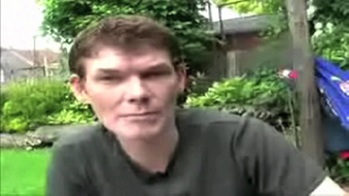
Gary McKinnon – Project Camelot Interview – Did He Really Have Anything To Gain By Lying About These Claims?
Gary McKinnon hacked into top secret US government files and made some mind blowing claims - here is the Project Camelots video interview from 2007

The Rex Deus Conspiracy – The Kings Of God! Is there a secret conspiracy that connects the Knights Templar, the Freemasons, Jesus, and a secret society by the name of Rex Deus, who claim to be descendants of such a bloodline...? From MYSTERIES FROM ANTIQUITY |

Spring Heeled Jack – The Devil? A Clever Hoax? Or A Lone Alien In 19th Century England? Spring Heeled Jack was witnessed throughout England throughout much of the 19th century - could he have been an a lone alien on our planet? From UFOs, ALIENS AND OUTER SPACE |
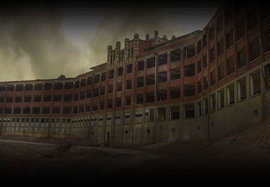
Voices, Ghosts And Room 502 – The Far Reaching Misery And Mystery Of Waverley Hills Sanatorium Known as one of the most haunted places on Earth, what exactly happened at Waverley Hills Sanatorium..... From GHOSTS, THE PARANORMAL AND ANYTHING STRANGE |
